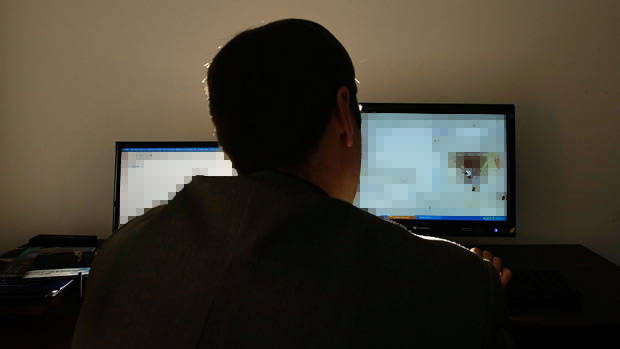Porn sites: are age checks the best way to protect children?
Regulator calls for law to be changed to protect children from seeing adult material on the internet

A free daily email with the biggest news stories of the day – and the best features from TheWeek.com
You are now subscribed
Your newsletter sign-up was successful
TENS of thousands of children are watching hardcore pornography on the internet, according to a new survey. Atvod, the online video watchdog, studied the web habits of 45,000 households and found that adult websites were accessed by three per cent of primary school children.
The regulator has called for a change in law to protect children from seeing adult material on the internet, which would involve credit and debit card companies withdrawing their facilities from websites that fail to carry out effective age checks. The government has said it will consider the request, but some critics say this is not the answer.
So what are the options when it comes to protecting children from online pornography?
The Week
Escape your echo chamber. Get the facts behind the news, plus analysis from multiple perspectives.

Sign up for The Week's Free Newsletters
From our morning news briefing to a weekly Good News Newsletter, get the best of The Week delivered directly to your inbox.
From our morning news briefing to a weekly Good News Newsletter, get the best of The Week delivered directly to your inbox.
Regulatory fines for porn sites
How does it work?Pornographic websites based in the UK are already required by Atvod to carry out age verification checks before customers can view explicit material. It is not sufficient for a user to simply state that they are over 18 - more acceptable is a requirement for the user to provide credit card details or other personal information that can be verified. Failure to do so can result in Ofcom issuing a fine or shutting down the website.
Drawbacks:Fines and the forced closure of UK porn sites have been rare. More crucially, the vast majority of online pornography is downloaded from overseas, where Atvod and Ofcom have no control. Critics say such tight regulations have already chased many porn companies out of the UK to places where they can no longer be regulated.
Policing porn sites
A free daily email with the biggest news stories of the day – and the best features from TheWeek.com
How does it work?In a report published last week, the Culture, Media and Sport select committee said that police must begin prosecuting websites that fall foul of obscenity legislation by failing to protect children. No pornography sites have ever been prosecuted under the 1959 Obscene Publications Act, according to MPs, who said police should be given more funding in order to administer the law.
Drawbacks:The legislation, once used in the controversial prosecution of Lady Chatterley's Lover, is seen by many as outdated. Police have been reluctant to use it, believing juries are likely to acquit defendants charged under the act, reports The Times. Child safety groups have said that even a few prosecutions could help deter others, but once again the law would be difficult to execute outside of the UK.
Licence for porn sites
How does it work?This is what Atvod is calling for today. The regulator wants credit and debit card companies to withdraw their facilities from pornographic websites that fail to carry out proper age checks. It wants all adult sites to have to apply for a licence to show that they carry out age checks. Those without the licence would not be able to take payments from UK customers. Atvod believes that blocking payments will disrupt the website's business model, which often relies on customers "trading up" to premium service subscriptions. This would, however, require new legislation.
Drawbacks:Jerry Barnett, from the free speech campaign group Sex and Censorship, has told the BBC that this will be ineffective for sites that offer free pornography funded by advertising. He added that some sites already accept Bitcoin and other anonymous online payment systems, so a clampdown on card payments would just accelerate this trend.
Parental controls
How does it work?Many commentators agree that it is the job of parents, not regulators and the state, to keep children safe online. Easy-to-use tools have been in place for years. For example, Apple allows parents to block their children from using Safari on iPhones and iPads. Kindles, games consoles and televisions with access to the web also offer password-restricted controls.
Drawbacks:"Unfortunately, not all parents are clued up about the many different parental controls available that can filter inappropriate content and keep their kids safe," Marie-Louise Abretti, telecoms expert at uSwitch.com, tells the Daily Telegraph. A survey by uSwitch showed that three quarters of parents were unable to name any parental control tools that can be applied to internet-ready devices.
'Family friendly' search filters
How does it work?Responding to Atvod's report today, the government has been trumpeting the work it did last year to clean up internet searches. Ministers pressured British internet service providers to use software filters that automatically block adult material unless households specifically ask for them to be turned off.
Drawbacks:Filters can erroneously block harmless material, including advice on sexual health, sexuality and relationships, which might actually do more harm than good. It is certainly not foolproof and many children are more tech savvy than their parents. Atvod, in particular, is keen for ministers to take a tougher stance.
-
 5 calamitous cartoons about the Washington Post layoffs
5 calamitous cartoons about the Washington Post layoffsCartoons Artists take on a new chapter in journalism, democracy in darkness, and more
-
 Political cartoons for February 14
Political cartoons for February 14Cartoons Saturday's political cartoons include a Valentine's grift, Hillary on the hook, and more
-
 Tourangelle-style pork with prunes recipe
Tourangelle-style pork with prunes recipeThe Week Recommends This traditional, rustic dish is a French classic